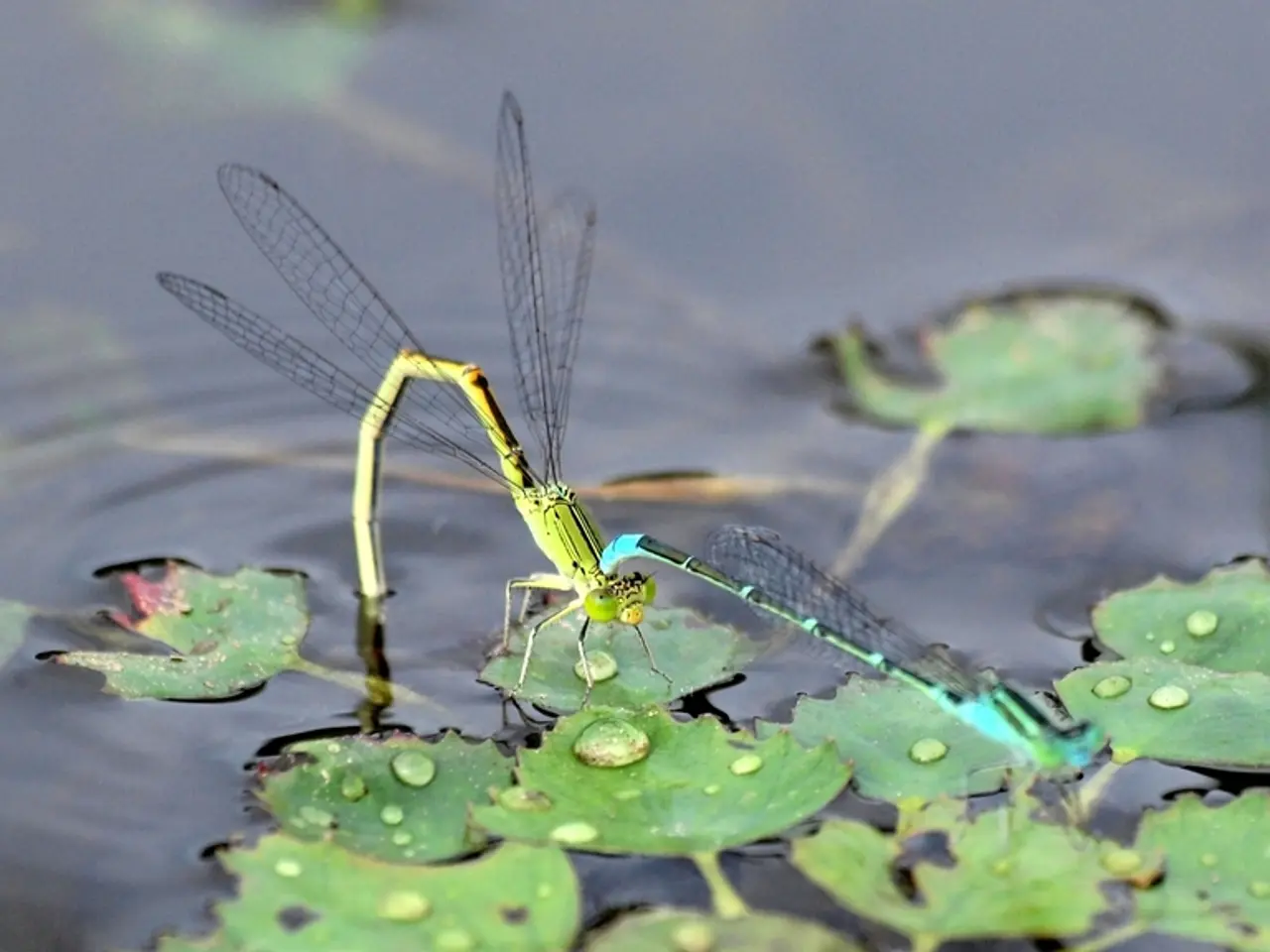Mosquitoes of the tiger variety will persist in spreading across the state of North Rhine-Westphalia (NRW), as reported by the National Office.
In North Rhine-Westphalia (NRW), the Asian Tiger Mosquito has established itself in isolated, locally limited areas, and is expected to spread further in the coming years. This mosquito, known for its black and white colouring and distinctive white stripe across its head and back, as well as its striped hind legs, can transmit viruses such as West Nile, Dengue, Zika, and Chikungunya.
The spread of the Asian Tiger Mosquito is attributed to favourable climatic conditions and international travel/freight traffic. To help contain the spread, citizens can eliminate its breeding sites by regularly emptying, cleaning, or covering water-holding objects such as flower pots, buckets, rain barrels, and discarded tires.
Additional measures include ensuring that garden ponds or water features are maintained with mosquito fish or treated to prevent larvae growth. Using mosquito screens on windows and doors can also prevent indoor entry. Citizens are encouraged to report sightings of the Asian Tiger Mosquito to local health authorities for monitoring and control initiatives. Supporting public health campaigns that raise awareness and guide community action against mosquito breeding is another important step.
In Brühl-Ost and Kerpen-Bügggen (Rhein-Erft district), residents are urged to empty water containers regularly and cover rain barrels with fine mesh nets. In Cologne, where no Asian Tiger Mosquito has been confirmed, residents are asked to be vigilant. Citizens can send suspicious insects for identification to the nationwide project "Mosquito Atlas", or in Cologne, they can send a photo of a suspicious insect to [email protected].
It's worth noting that no cases of virus transmission to humans by the Asian Tiger Mosquito have been reported in NRW. However, confirmed populations exist in Bonn, Kerpen, and Brühl. The first specimen was reported in Euskirchen in 2021, but no further findings were made there.
The State Office for Health and Occupational Safety (LfGA) provided this information to dpa in response to a query. These actions collectively reduce the mosquito population and decrease the risk of dengue and other diseases the Asian Tiger Mosquito can transmit. By working together, we can help keep our communities safe from this invasive species.
The Asian Tiger Mosquito, known for its ability to transmit viruses like West Nile, Dengue, Zika, and Chikungunya, is expected to spread further due to factors such as climate change and international travel/freight traffic. To mitigate the spread in North Rhine-Westphalia, citizens are encouraged to participate in environmental-science-based initiatives, such as maintaining clean water containers and using mosquito screens, to eliminate breeding sites and reduce the mosquito population, thereby decreasing the risk of dengue and other related diseases.








